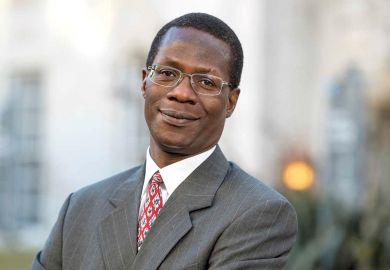In the West, we trace our atomisation of the physical world back to the ancient Greeks and their notion that the world is made up of elemental substances intermingled in infinite variety. Commonest among these early dissections of matter is its reduction to the famous four of earth, air, fire and water. Now we know that these four are not elemental, that fire is not even a substance, and we understand nature in terms of 111 elements (not 118 as the author tells us), ranging from simple, abundant hydrogen to heavy, fleeting roentgenium, the latest to be acknowledged and named (in 2004). Physicists, of course, scoff at the chemist's notion of elementary and burrow seemingly endlessly into underlying layers of the fabric of reality. But chemists are content to stop at the chemical elements, for they are sufficiently simple to be considered reasonably fundamental, remain unchanged in chemical reactions and have a wide range of personalities to make them interesting as individuals.
Rebecca Rupp's account of the elements acknowledges the modern definition but focuses on the personalities of the classical elements: earth, air, fire and water. Hers is an allusive tale, examining not the chemistry of the famous four (although she touches on it) but on the way these personalities are expressed in the everyday world, the world of literature and language, the world of anything that tickles her fancy and catches her eye. Just lie back and think of water. The stream (note stream) of consciousness leads us from the oceans to the clouds, the vigour of wave motion, to ripples, to the notion of drowning, of drowning our sorrows, of floating, of floating a company. The fact that each of us is 75 per cent water and 90 per cent of the Earth's biomass inhabits the oceans opens the sluice gates for a meander through biology, where the author (originally a cell biologist) is most at home.
If you do not feel in your element in water, let your imagination take flight in the air, that "most spiritual of elements", with all its allusions to anima, aura, psyche and pneuma, the storm of Lear and the tempest of Prospero. And if your imagination does not take to the winds - even with the help of the Lapp Sami people, who had a nice line in captured winds for sale to sailors - then perhaps your interest can be kindled by fire, be it the blaze of fire or the detonation of explosion.
And finally, come down to Earth, an excuse for wandering through alchemy and its attempt to transform one earth into another more valuable, from Earth to dirt and the calamity of Biosphere 2.
I enjoyed this jackdaw's book hugely. The style is occasionally too informal for my taste ("for elements, the nucleus is where it's at"), one or two facts are unreliable, and not all the unit conversions are anywhere near true (I doubt whether even in profligate America a coat of paint is thicker than 1mm, and Plato did not die in 1400BC, as the text implies).
But it is possible to imagine the pleasure that the author must have felt as she came across the huge number and great variety of facts, nearly facts, big facts, little facts, stubborn fictions and literary and anthropological allusions as she prepared for this book. It is easy to journey with her through her accumulation of fascinating points and to admire how she has done such a splendid job of combining them into chapters that flow so freely.
Peter Atkins is professor of chemistry, Oxford University, and author of The Periodic Kingdom .
Four Elements: Water, Air, Fire, Earth
Author - Rebecca Rupp
Publisher - Profile
Pages - 373
Price - £16.99
ISBN - 1 86197 234 2
Register to continue
Why register?
- Registration is free and only takes a moment
- Once registered, you can read 3 articles a month
- Sign up for our newsletter
Subscribe
Or subscribe for unlimited access to:
- Unlimited access to news, views, insights & reviews
- Digital editions
- Digital access to THE’s university and college rankings analysis
Already registered or a current subscriber?



